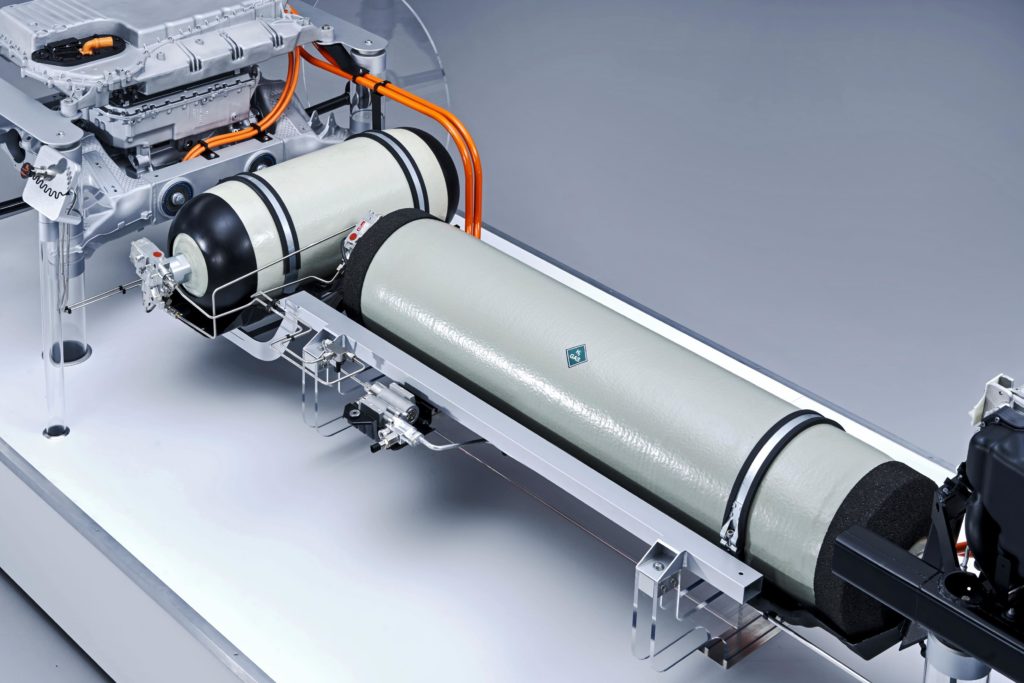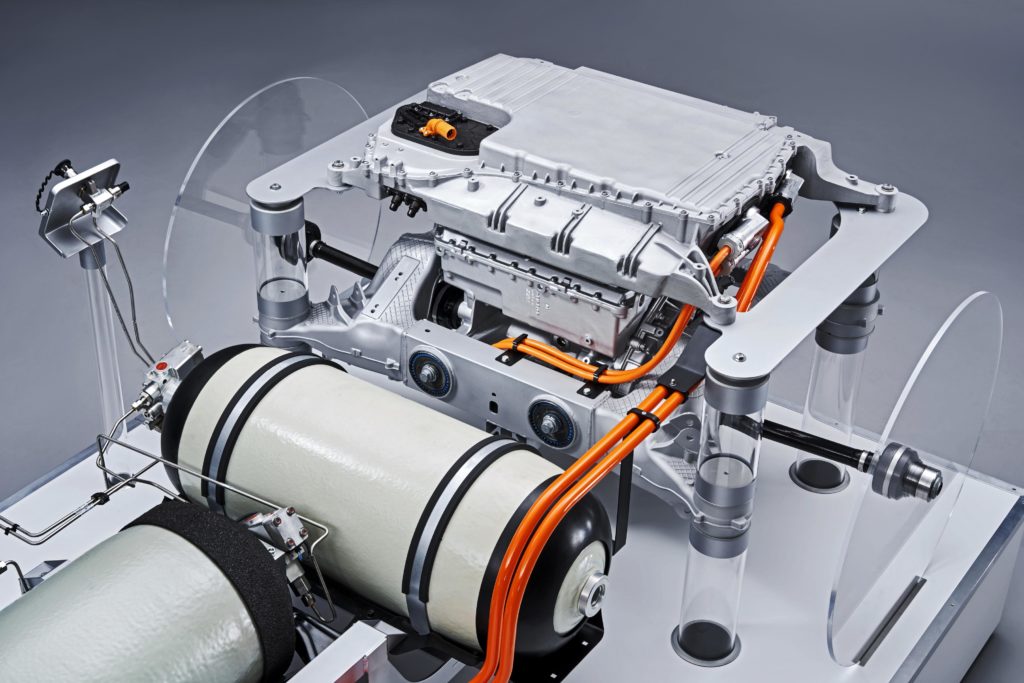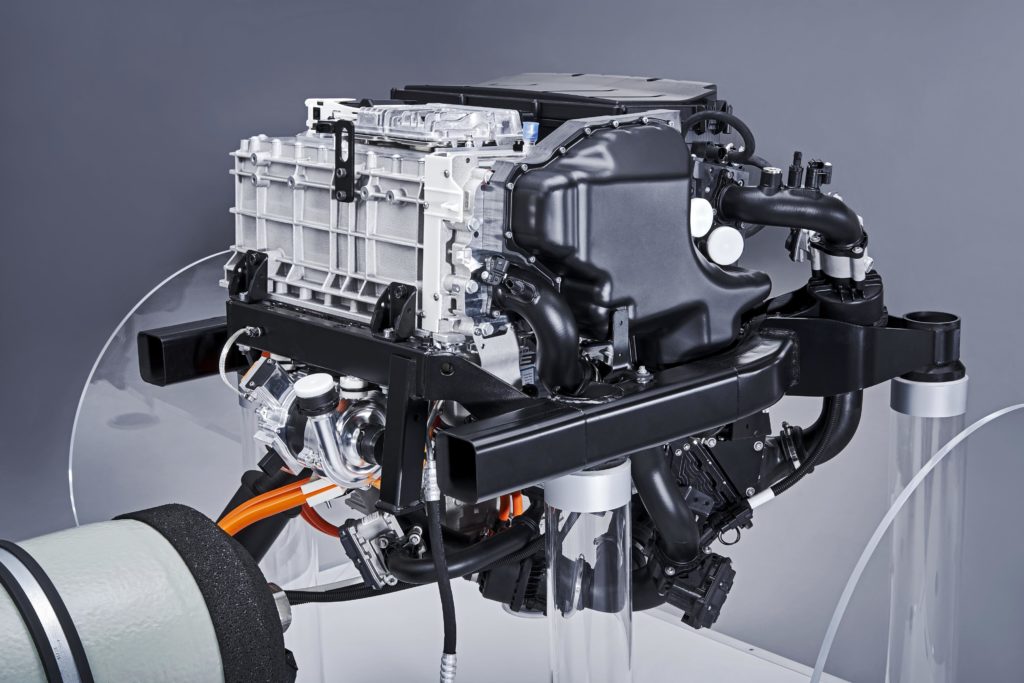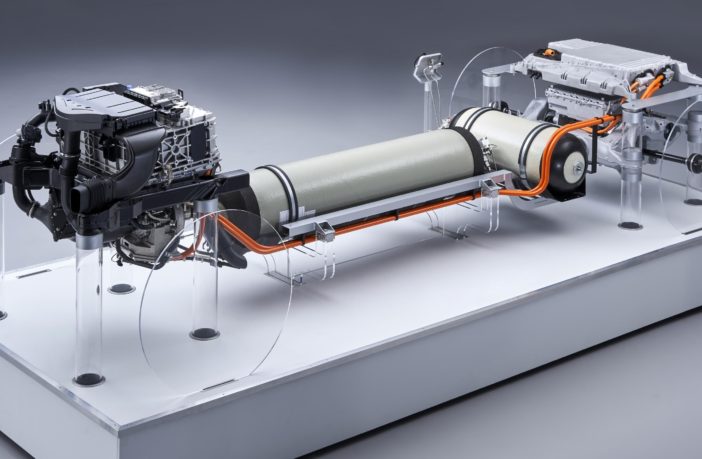BMW reveals first look at i Hydrogen Next powertrain
As part of a collaboration between BMW and Toyota to research and produce hydrogen fuel cell technology, the first details of the powertrain system for the BMW I Hydrogen Next has been revealed.
The fuel cell system for the powertrain for the BMW i Hydrogen NEXT generates up to 125 kW (170 hp) of electric energy from the chemical reaction between hydrogen and oxygen from the ambient air. The electric converter located underneath the fuel cell adapts the voltage level to that of both the electric powertrain and the peak power battery, which is fed by brake energy as well as the energy from the fuel cell. The vehicle also accommodates a pair of 700 bar tanks that can together hold six kilograms of hydrogen, with refueling taking only three to four minutes.

To meet the technological demands of a hydrogen-powered fuel cell vehicle by the second half of this decade, the BMW Group is teaming up with the Toyota Motor Corporation as part of a successful partnership that dates back to 2013. The two manufacturers have joined forces to work on fuel cell powertrain systems and scalable, modular components for hydrogen fuel cell vehicles under a product development cooperation agreement. Fuel cells from the cooperation with Toyota will be deployed in the BMW i Hydrogen NEXT, alongside a fuel cell stack and overall system developed by the BMW Group.

Despite the long-term potential of fuel cell powertrain systems, it will be some time before BMW offers its customers a production car powered by hydrogen fuel cell technology. This is primarily due to the fact that the right framework conditions are not yet in place. “In our view, hydrogen as energy carrier must first be produced in sufficient quantities at a competitive price using green electricity. Hydrogen will then be used primarily in applications that cannot be directly electrified, such as long-distance heavy duty transport,” said Klaus Fröhlich, member of the board of management of BMW AG, Research and Development. The requisite infrastructure, such as an extensive, Europe-wide network of hydrogen filling stations, is also lacking at present. However, the BMW Group is pressing ahead with its development work in the field of hydrogen fuel cell technology.

“We are convinced that various alternative powertrain systems will exist alongside one another in future, as there is no single solution that addresses the full spectrum of customers’ mobility requirements worldwide. The hydrogen fuel cell technology could quite feasibly become the fourth pillar of our powertrain portfolio in the long term.”
![]()
Source: https://www.electrichybridvehicletechnology.com
FLEET MANAGEMENT NEWSLETTER
Join to our NEWSLETTER; you’ll get the latest news, articles, publications, training, conferences, events, congresses, and white papers related to Fleet Management, Mobility and Automotive IN your email fortnightly.
NEWSLETTER




